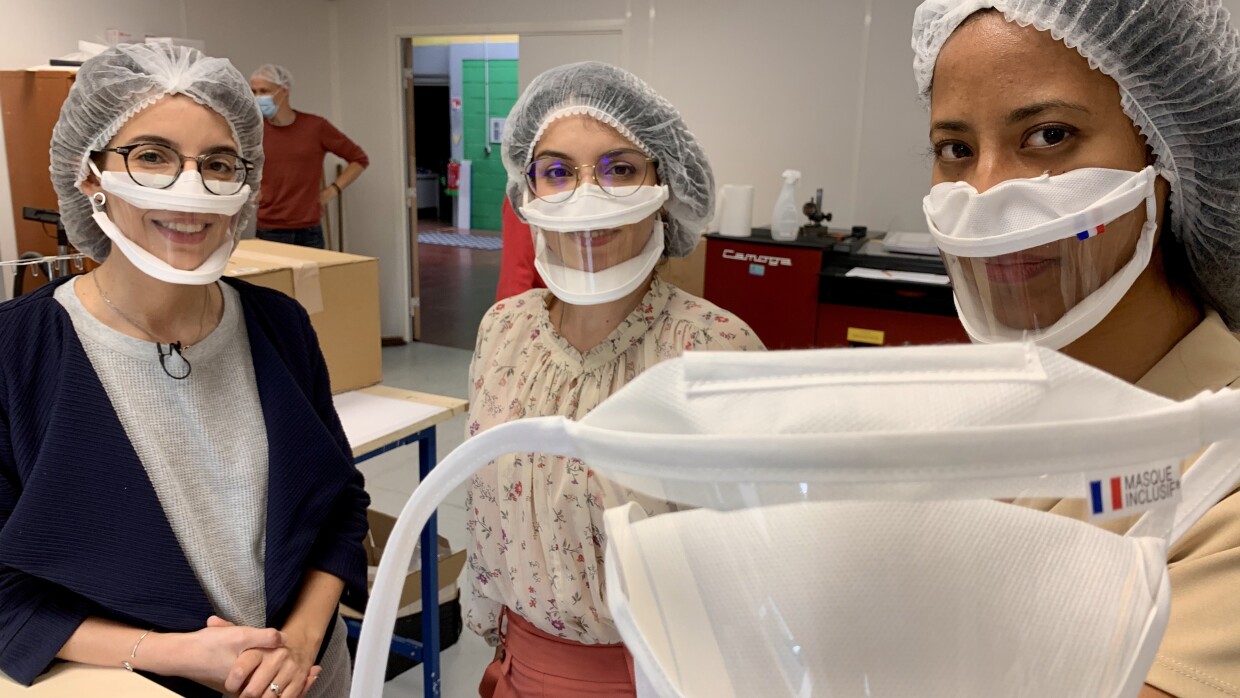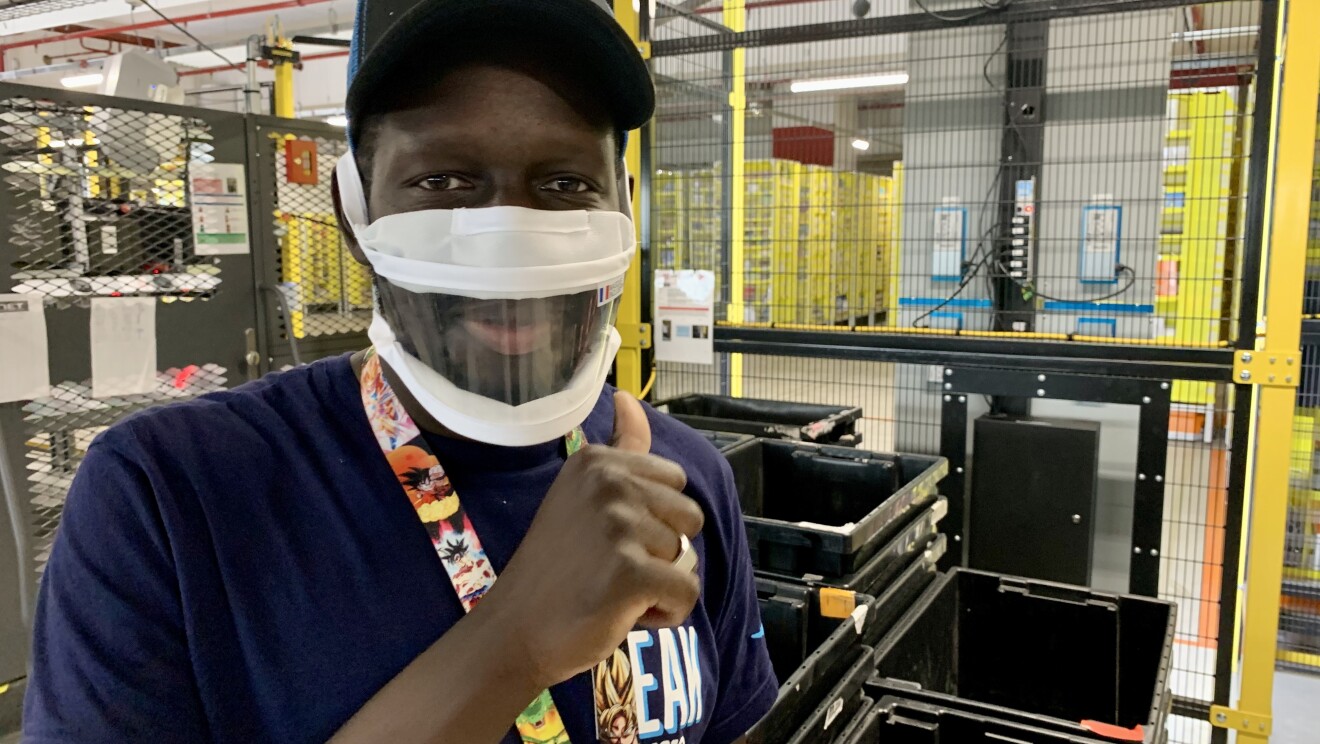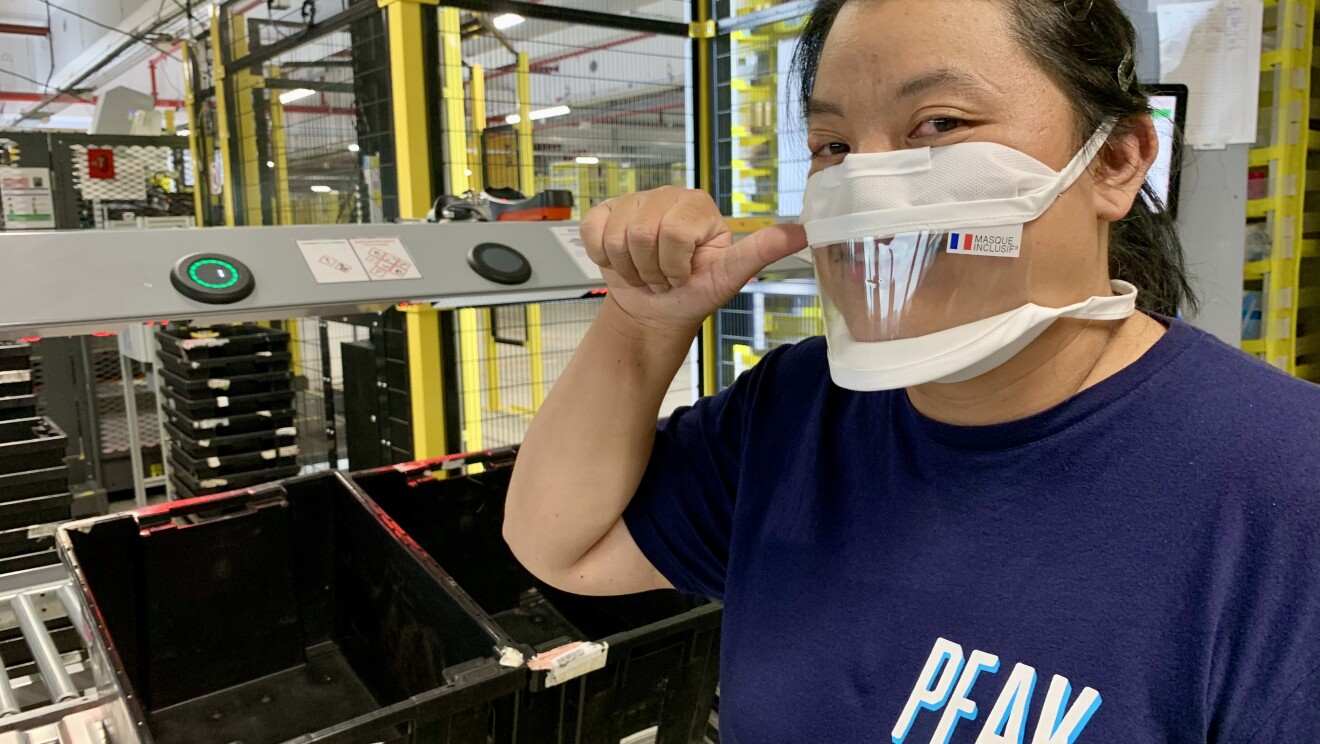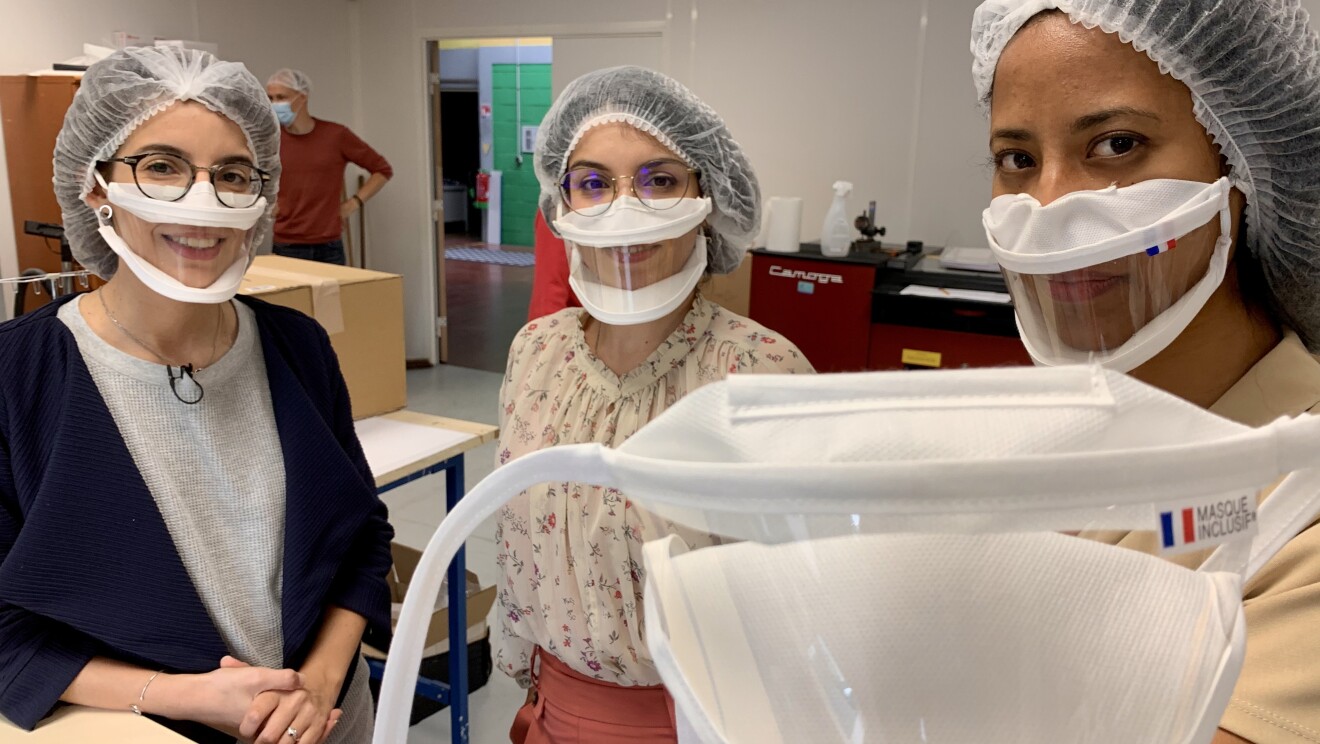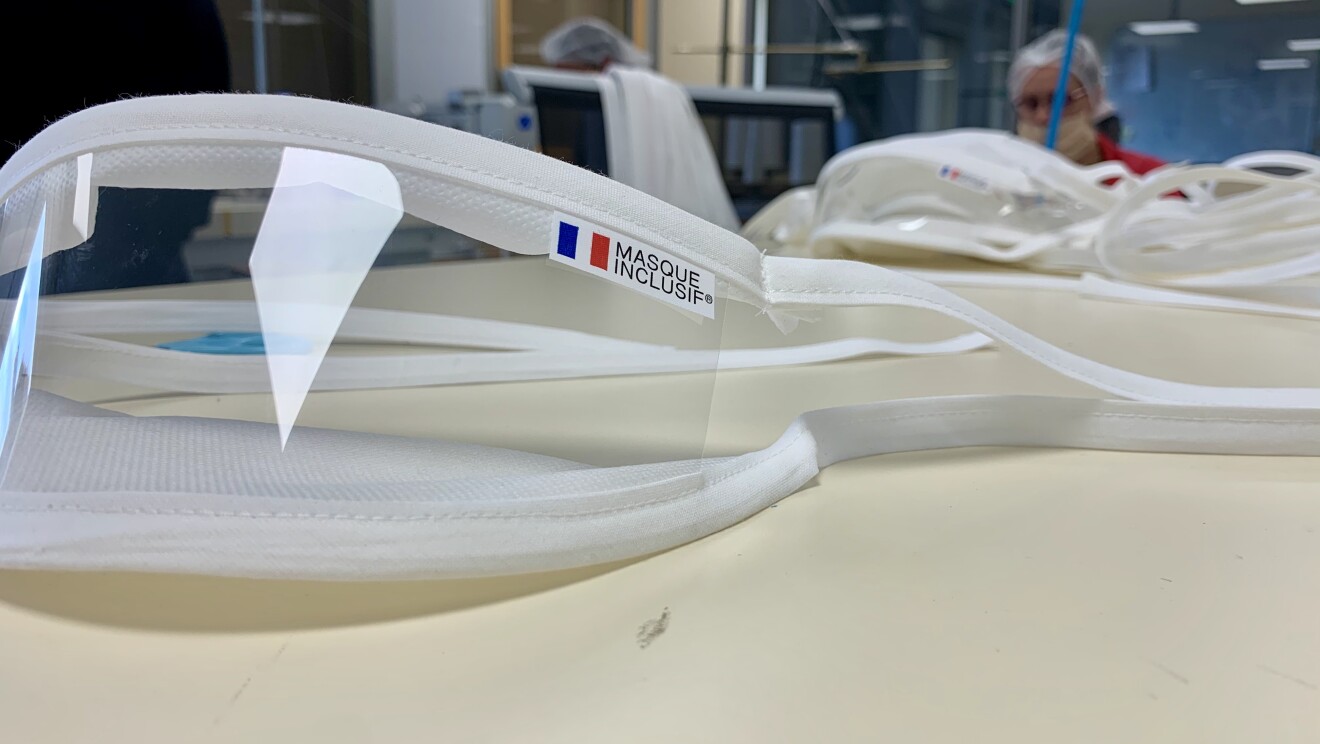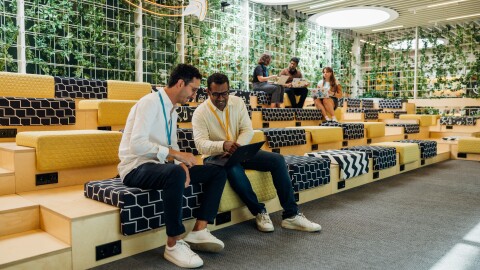Marina was a production operator in a dry-cleaning business for 13 years and dreamed of working at Amazon. So when Amazon opened a fulfillment centre in Bretigny on the outskirts of Paris close to where she lives, she immediately applied and quit her previous job to join Amazon. “I was the only deaf employee at my previous job and felt a bit isolated, because communicating with colleagues was difficult. In the workplace, the main obstacle that deaf employees face is communication, whether it be talking to colleagues or understanding the instructions given by management,” she says. “There is a constant feeling of exclusion, notably in staff meetings when nothing has been put in place to make it easier for us to understand each other. Deaf people constantly have to adapt by finding ways to communicate, generally by writing things down or miming. At Amazon, we are fully integrated from the start with sign-language interpreters present at job interviews, which makes communicating easier. Also, I’m no longer the only one, I have several deaf colleagues.”
Being fully integrated into the team
Amazon has put several initiatives in place to learn from their employees with disabilities, facilitating the integration process. This commitment is fulfilled by adapting processes and workstations, making changes to warehouses or even establishing best practices to improve every employee’s well-being and working conditions. Also, sign-language courses are available for all employees in order to promote the integration of colleagues who are deaf or hard of hearing.
As a result, Marina was able to follow the same “normal” pathway as any other Amazon warehouse associate. She received training in the “pick”, “stow” and “pack” processes in the fulfillment center. She is delighted and not only enjoys her job and the work atmosphere, but particularly appreciates the fact that she is fully integrated into her team, a feeling she was missing before coming to Amazon.
Upholding communication despite the masks
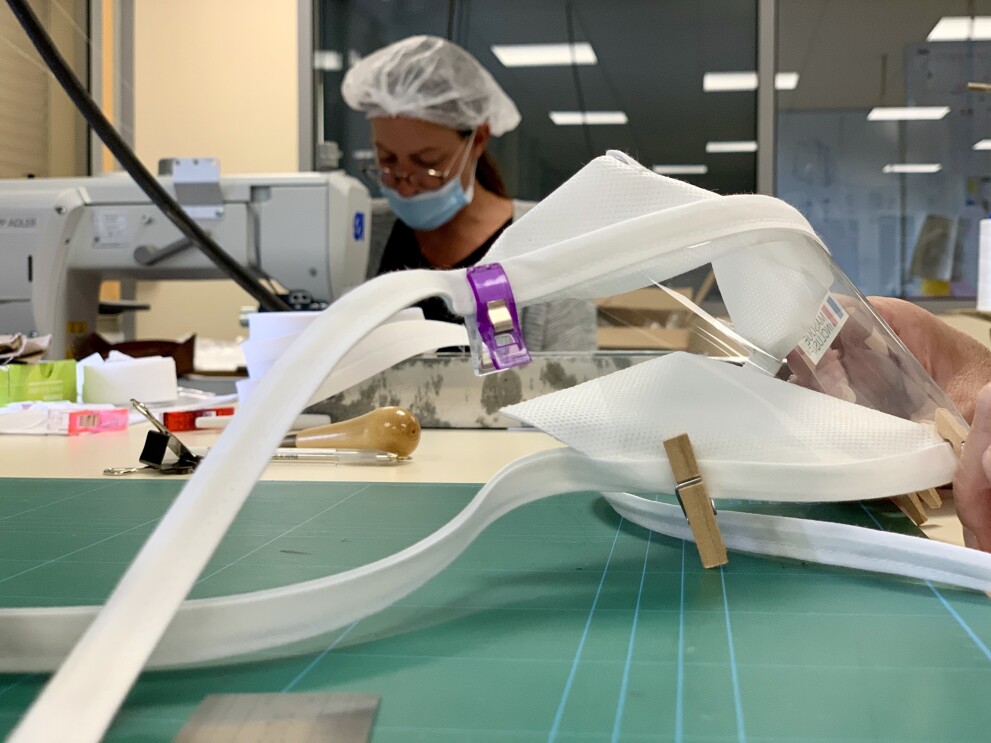
However, the COVID-19 crisis and mandatory masks in the workplace have somewhat turned her day-to-day life upside down. While wearing a mask is a mild inconvenience for most employees, for Marina and other hard-of-hearing people, it becomes an obstacle to communication. “In our language, one sign can have different meanings,” she explains. “This is why we need to be able to read people’s lips so we can correctly understand what they are trying to convey with sign language. With traditional masks this is impossible. We had to pull the masks down which, of course, was not the ideal solution. When we started to wear inclusive masks, it was such a relief.”
It’s a real pleasure to work for a company that takes our problems into consideration and looks for ways to improve our integration and well-being.
Last July, Amazon ordered 500 inclusive masks for their employees. Designed by Anissa Mekrabech, and made in France by APF Enterprises (a company promoting the integration of employees with disabilities), these masks were designed to make life easier for people who rely on lip-reading. They come with a transparent plastic window which allows people to see your facial expressions. “Amazon was our first customer and we are delighted that we can contribute to employees’ well-being with a tool that improves their working conditions,” said Anissa Mekrabech at the time of the first tests.
Feeling that our issues matter
“Before we got these masks, communication was difficult. With all the misunderstandings, I sometimes just gave up,” reflects Marina. “Nowadays, communication is fluid again. It’s an excellent idea.” This shows once again that simple ideas and a genuine desire to take differences into account are often all it takes to break down barriers. Marina concludes by stating: “It’s a real pleasure to work for a company that takes our issues into consideration and looks for ways to improve our integration and well-being.”


